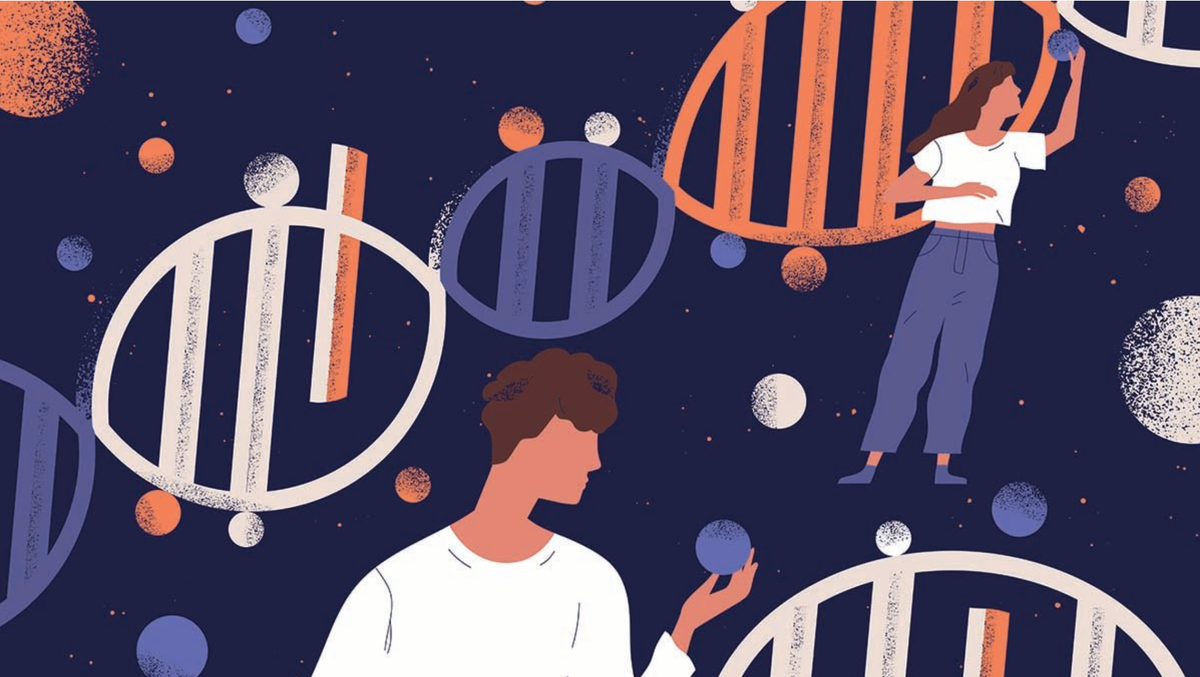Your childhood is telling your genes how to behave

Childhood gives us so much. Whether it's memories of your dad throwing you in the deep end of a swimming pool and shouting, "if you don't swim you'll sink" or a deep-seated fear of Turkish Delight, the things that happen to us in our childhoods have profound impacts on our lives today.
More recently however, researchers are starting to unearth another key area our former selves still pull the strings: our genes.
A new research paper from King's College London, has found our experiences of childhood play an enormous role in how some of our genes are 'expressed'. Let me explain.
Gene Genie 🧞
Gene regulation or “epigenetics” as scientists call it, is the process of turning on or off genes. It’s an important part of how our bodies develop over time. For instance, a certain group of genes are turned on to increase hormone production during puberty. Other genes are turned on, or 'expressed' when other factors are present, like old age, or stress.
In this study, researchers wanted to find out if where, and how we were brought up had any impact on this switching on or off of genes.
"We found that children who were raised in communities marked by more economic deprivation, physical dilapidation, social disconnection and danger, displayed differences from their peers in their epigenomes. This was in comparison to those who grew up in well-off neighbourhoods, which had cleaner air and were more socially connected, safe and well looked after," says Helen Fisher, one of the paper's authors.
While that may sound obvious - kids tend to do better when they have access to better facilities and care - understanding that genes are also being changed gives us a better understanding of why some people might struggle with health problems later on, or why some children struggle at school.
For example, exposure to air pollution causes a huge reduction in our intelligence, and why when we eat a lot of red meat, we're more likely to get cancer. These are all examples of our genes, when in certain environments making choices for us.
Teaching old genes new tricks 🧬
While this is all very interesting, or depressing, depending on where you grew up, researchers are focusing their attentions on whether or not these effects can be reversed? Can we undo the damage done in our early years? Initial research suggests we can.
The Grant Study, the longest ever-consistent piece of research into human beings (it's being going on for 75-years) found that while having poor childhoods were a significant factor in determining a person's potential happiness, and health, there were those who managed to completely change their lives and potential health outcomes in their later years.
In essence, you can teach old genes new tricks.
Ok, where can I learn more? 📚
- The Grant Study - one of the most inspiring pieces of research about the secrets to a good life.
- Slightly off-topic but still super interesting, a short video on whether trauma can be inherited.
- The King's College study research paper - if you want to dive in to see the results in more detail.





